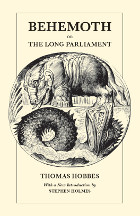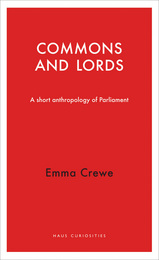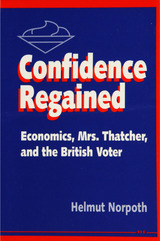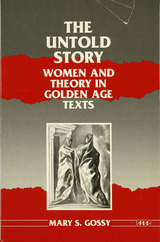
In his insightful and substantial Introduction, Stephen Holmes examines the major themes and implications of Behemoth in Hobbes's system of thought. Holmes notes that a fresh consideration of Behemoth dispels persistent misreadings of Hobbes, including the idea that man is motivated solely by a desire for self-preservation. Behemoth, which is cast as a series of dialogues between a teacher and his pupil, locates the principal cause of the Civil War less in economic interests than in the stubborn irrationality of key actors. It also shows more vividly than any of Hobbe's other works the importance of religion in his theories of human nature and behavior.

Based on fieldwork within both Houses, this volume in the Haus Curiosities series provides a surprising twist in how relationships in each play out. The high social status of peers in the House of Lords gives the impression of hierarchy and, more specifically, patriarchy. In contrast, the House of Commons conjures impressions of equality and fairness between members. But actual observation reveals the opposite: while the House of Lords has an egalitarian and cooperative ethos that is also supportive of female members, the competitive and aggressive House of Commons is a far less comfortable place for women. Offering many surprises and secrets, this book exposes the sheer oddity of the British parliament system.


Reproducing some 150 images drawn from Furniss’s extensive graphic work, The Humours of Parliament: Harry Furniss’s View of Late-Victorian Political Culture, edited and with an introduction by Gareth Cordery and Joseph S. Meisel, presents Furniss’s unpublished lecture text for the first time. The extensive introduction places the show in its biographical, political, and performative contexts. Cordery and Meisel’s volume therefore both documents a pivotal moment in British political and social history and provides a rare case study of an important yet little studied nineteenth-century performance genre: the illustrated platform lecture.

In 1624 James I invited Parliament to discuss issues of war and peace, setting a precedent which would make yet another inroad into the ancient prerogatives of the crown. The so-called “Happy Parliament” dismayed the peace-loving King by supporting Prince Charles and the Duke of Buckingham in their demands for war with Spain.
Robert Ruigh presents an absorbing and authoritative analytic narrative of the proceedings between Parliament and the crown and their far-reaching constitutional and political consequences. His use of fifteen parliamentary diaries and other contemporary manuscripts has resulted in a balanced account which avoids the tendency to vilify the Stuarts and glorify the Commons, and which provides an integrated and perceptive picture of the Parliament. He presents an analysis of patronage in relation to the composition of the Commons and a reevaluation of historical generalizations about the senility and ineffectuality of King James during his declining years, the seizure of power by the Duke and the Prince and their management of Parliament, the precedent of free speech in foreign affairs, and the effect of Parliament on contemporary politics.

Modern legislators are increasingly motivated to serve their constituents in personal ways. Representatives act like ultimate ombudsmen: they keep in close touch with their constituents and try to cultivate a relationship with them based on service and accessibility. The Personal Vote describes the behavior of representatives in the United States and Great Britain and the response of their constituents as well. It shows how congressmen and members of Parliament earn personalized support and how this attenuates their ties to national leaders and parties.
The larger significance of this empirical work arises from its implications for the structure of legislative institutions and the nature of legislative action. Personalized electoral support correlates with decentralized governing institutions and special-interest policy making. Such systems tend to inconsistency and stalemate. The United States illustrates a mature case of this development, and Britain is showing the first movements in this direction with the decline of an established two-party system, the rise of a centrist third party, greater volatility in the vote, growing backbench independence and increasing backbench pressure for committees and staff.
This book is essential for specialists in American national government, British politics, and comparative legislatures and comparative parties.

This volume is a systematic study of the politics of five crucial years of the Puritan Revolution, the period between John Pym's death in December 1643 and the execution of Charles I in January 1649. MacCormack provides a fresh and coherent interpretation of the events chronicled in the first volume of S. R. Gardiner's monumental History of the Great Civil War, a work long known to be inadequate.
Through an exhaustive compilation of the activities of individual members, MacCormack examines the Long Parliament and the structures of its parties. He investigates the degree to which the division between parties was religious or political, the character of the leadership of the two major groups (moderates and radicals), and the transformation of the parties during the five-year period.
The author focuses on the way in which the Parliamentary radical group led by Oliver St. John, Sir Henry Vane, Jr., and Oliver Cromwell gradually retreated from their revolutionary stance of 1644 in the face of the genuine populism of the Levellers. He contends that their failure to retain the moral leadership of the revolution led to the fragmentation of parties in 1648 and to the eventual dictatorship of Oliver Cromwell.
The book includes fresh interpretations of the role of Oliver Cromwell, especially in 1647 and 1648 when he emerged as the central figure. Significant material is also presented on John Lilburne. In analyzing the transformations of the radical party, the author places Lilburne's party, the Levellers, in the political context of the Revolution.
READERS
Browse our collection.
PUBLISHERS
See BiblioVault's publisher services.
STUDENT SERVICES
Files for college accessibility offices.
UChicago Accessibility Resources
home | accessibility | search | about | contact us
BiblioVault ® 2001 - 2026
The University of Chicago Press









